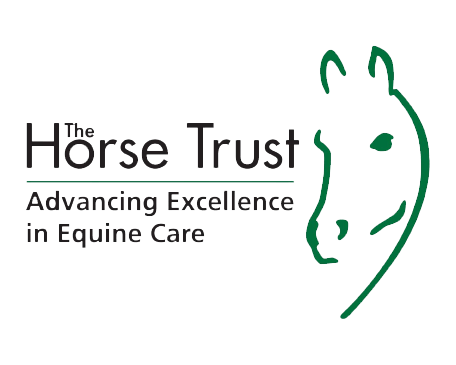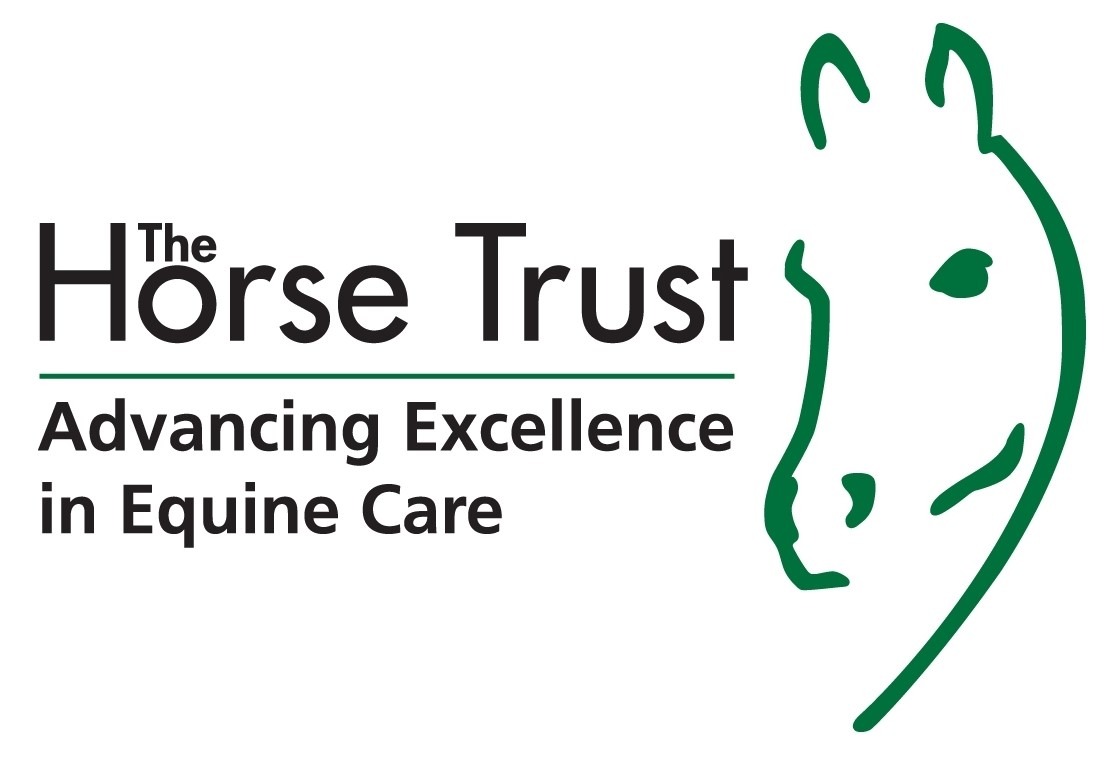RESEARCH & GRANTS
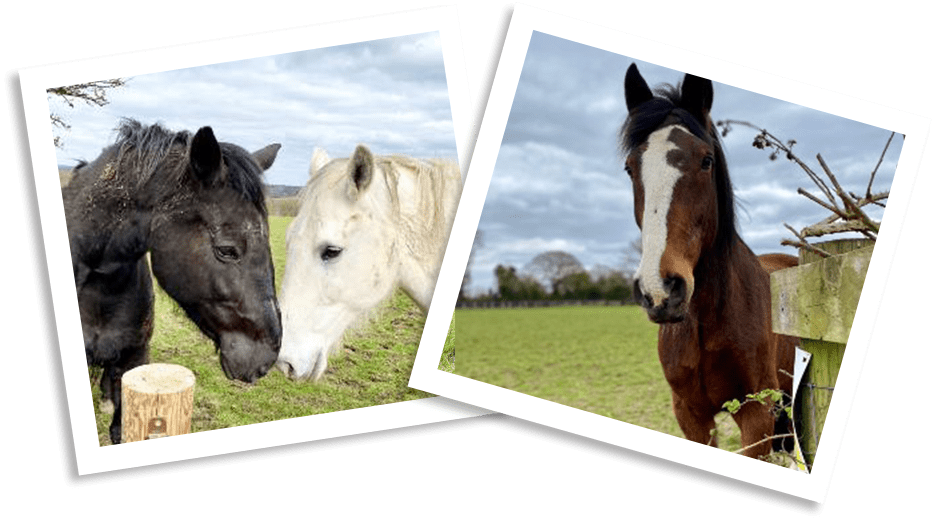
Research Funding
The Horse Trust’s grant-giving arm funds ethically approved non-invasive research of the highest scientific standard that advances our knowledge of veterinary treatment, the optimal care of horses and the prevention of disease and suffering. Our focus is translating the outcomes of the research we have funded into real tools that the horse owner can use, to impact not only welfare and treatment of equines in the UK, but worldwide.

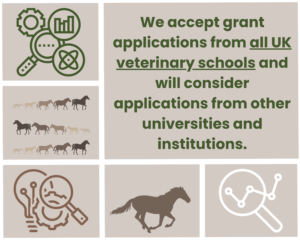
The Horse Trust seeks active partnerships with successful applicants to help share the outcomes from the work we undertake, developing and disseminating best practice to improve the lives of horses. We aim to support you in the publication of scientific and lay articles as well as more active collaborations – interviews, producing editorial for publications, media and social media initiatives, seminars, short films and other innovations aimed at changing peoples’ behaviour in the interests of improving horse wellbeing.
Previous Horse Trust Funded Research
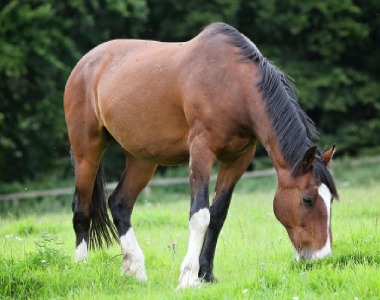
The Horse Trust has funded a vast amount of research through key universities, veterinary schools and the Animal Health Trust in order to establish an evidence base for best practice in caring for horses. In some cases, the research has been in collaboration with global experts at establishments the world over, in order to be able to share knowledge with expert scientists. We use the outcomes of this very important work, first and foremost, at our Home of Rest. Our everyday horse keeping will be shaped by the outcomes of this work. We then work closely with the researchers and with key organisations in the horse world to ensure that it can also be used by other charities, horse world bodies and ultimately individual horse keepers to improve the well-being of horses and ponies.
Equine Grass Sickness (EGS)
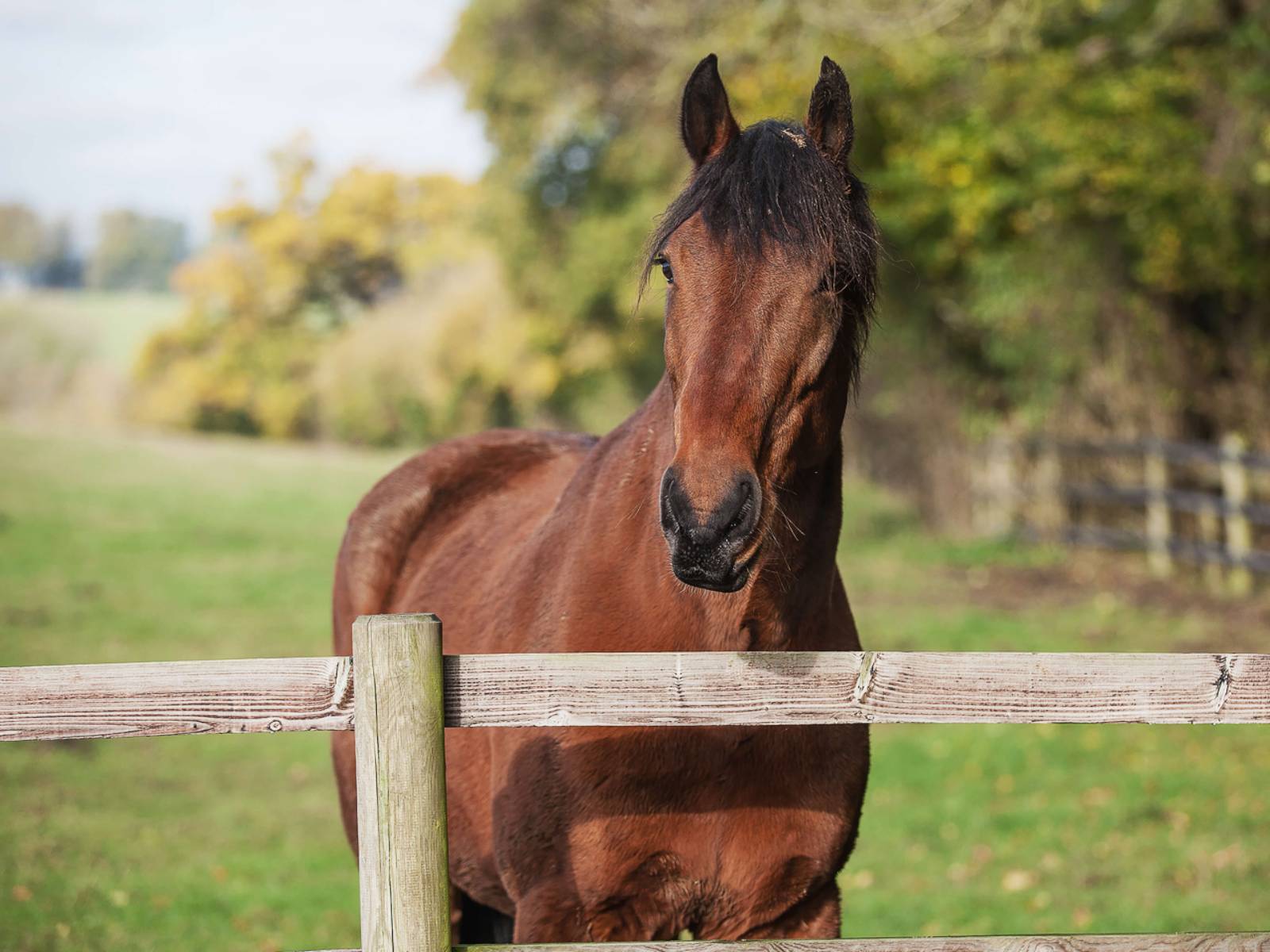
We funded this project to find out whether the ingestion of mycotoxins produced by fungi growing on pasture under appropriate weather and environmental conditions is contributing to horses succumbing to this often-fatal disease. The researchers identified 56 key fungi that are significantly associated with EGS and which therefore could potentially cause this disease. Next steps are to carry out follow-up analysis of archived samples collected from EGS horses for neurotoxic mycotoxins to determine whether and which types of key fungi cause EGS. What we found was that when dung is picked up from pasture, there is a reduction in EGS risk and this highlights the important preventative strategy of poo picking.
Equine Veterinary Surveillance Network (EVSNET)
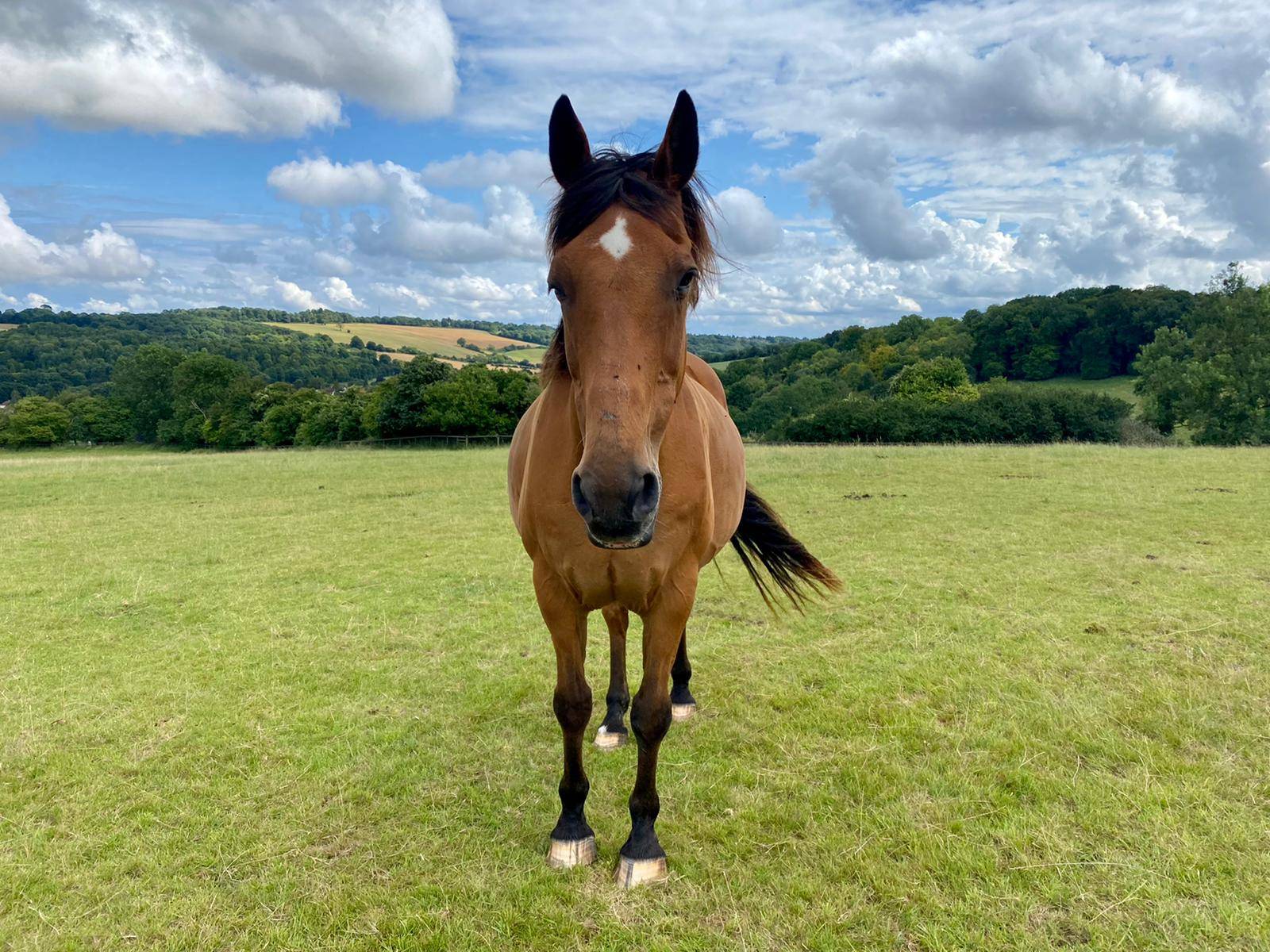
Equine Veterinary Surveillance Network (EVSNET) for the UK Equine Population is an initiative from the University of Liverpool, funded by The Horse Trust, which will provide equine health and disease information to veterinary practitioners, laboratories and owners of equines. EVSNET is important because there is currently no comprehensive national surveillance of equine health records within the UK. EVSNET aims to be a system for syndromic surveillance and research on a large, real-time and continuous scale in the UK equine population. This project will use health data from two sources: diagnostic laboratories and veterinary practices.
Surveillance of Equine Strangles
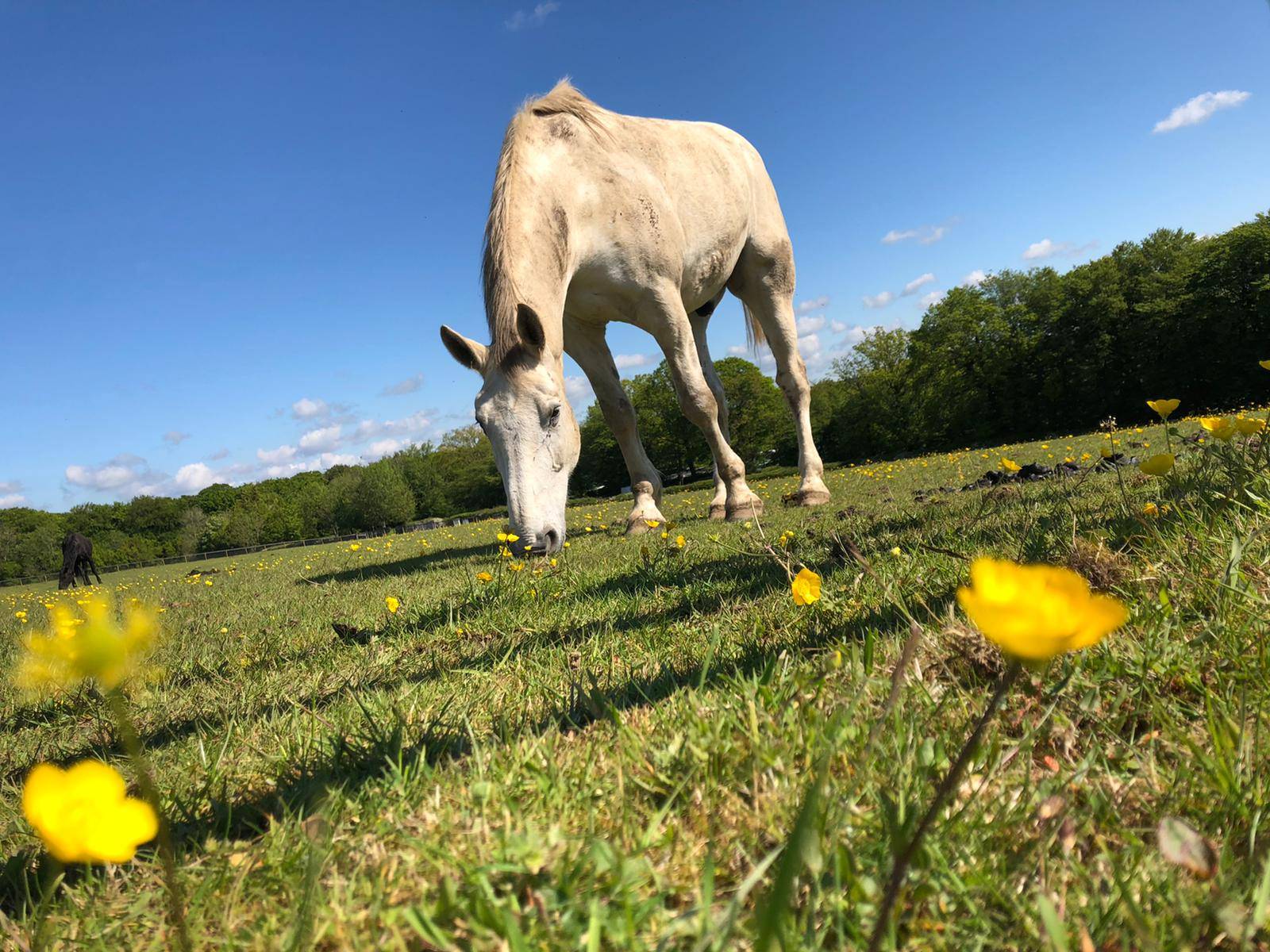
A new study from the Royal Veterinary College (RVC), funded by The Horse Trust, analysing laboratory diagnoses of strangles across the UK, has been published in leading veterinary journal, the Veterinary Record. It paves the way for an improved understanding of the spread and control of strangles to reduce the impact of this devastating disease.
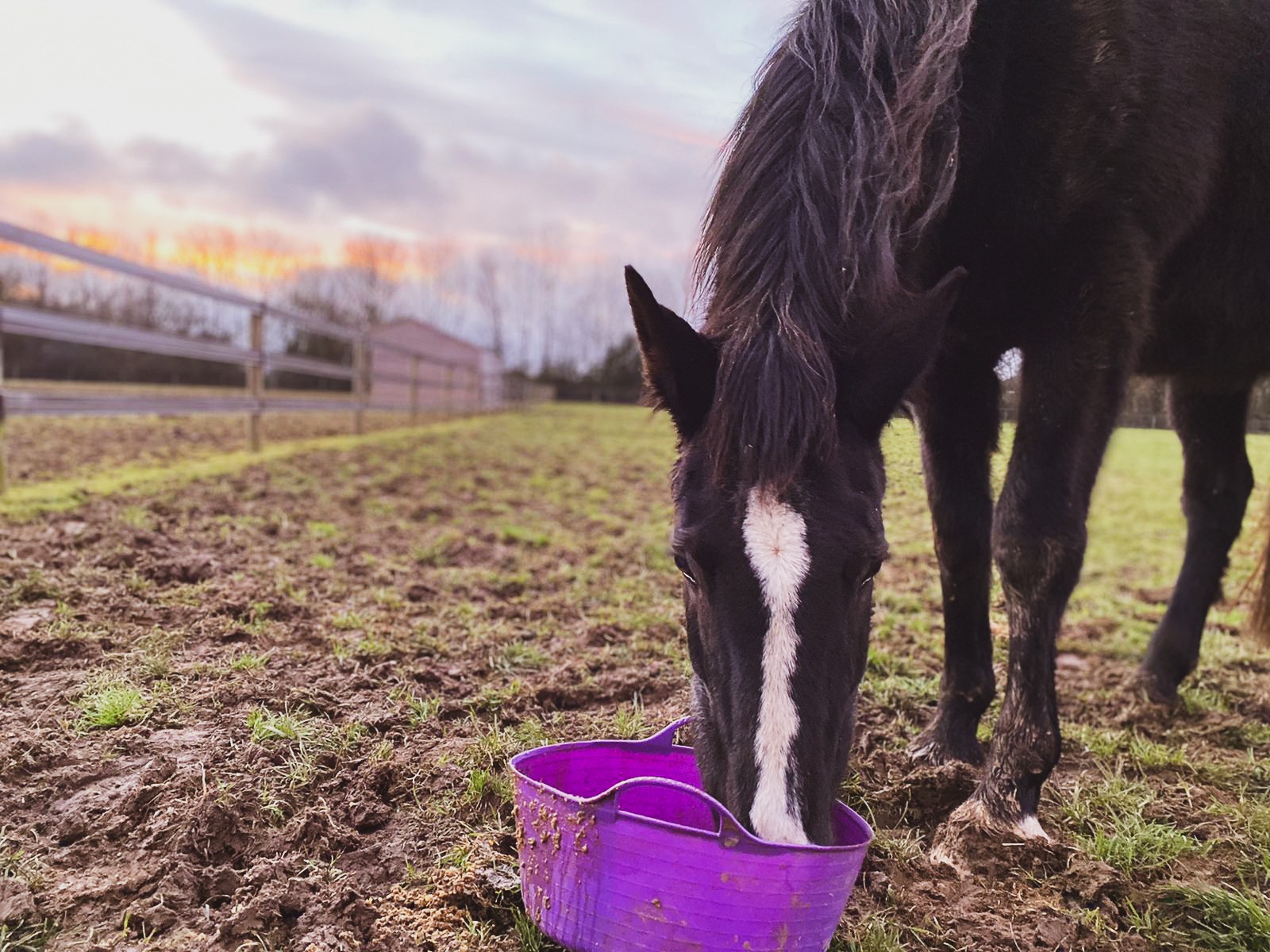
Equine Weight Management
Managing horses’ weight so that they can be as healthy as possible can be a challenge, especially in summer. The University of Liverpool has carried out a great piece of research work to develop a wide range of practical, simple hints and tips to help us all look after the weight of our horses!
Improving biosecurity
Key points to improve biosecurity and reduce the spread of disease on horse yards. Our research work with the University of Liverpool looking at how horse keepers manage biosecurity and yard health has helped us in the recent outbreaks of equine flu. We have worked with Stromsholm (the farrier equipment experts) to produce a short video and lots of resources for farrier and equine professionals about the important things to do to reduce the risks of spreading disease. Click play below to watch the video.
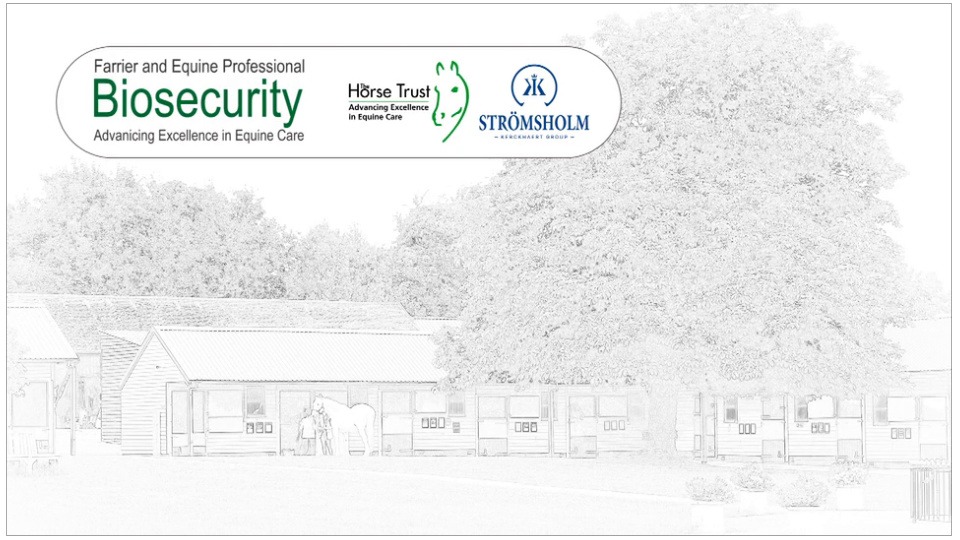
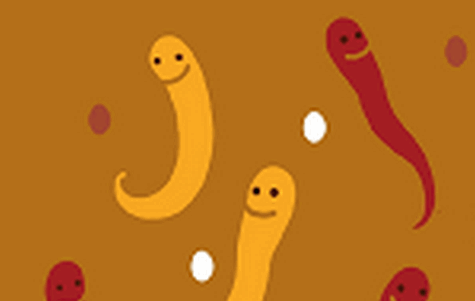
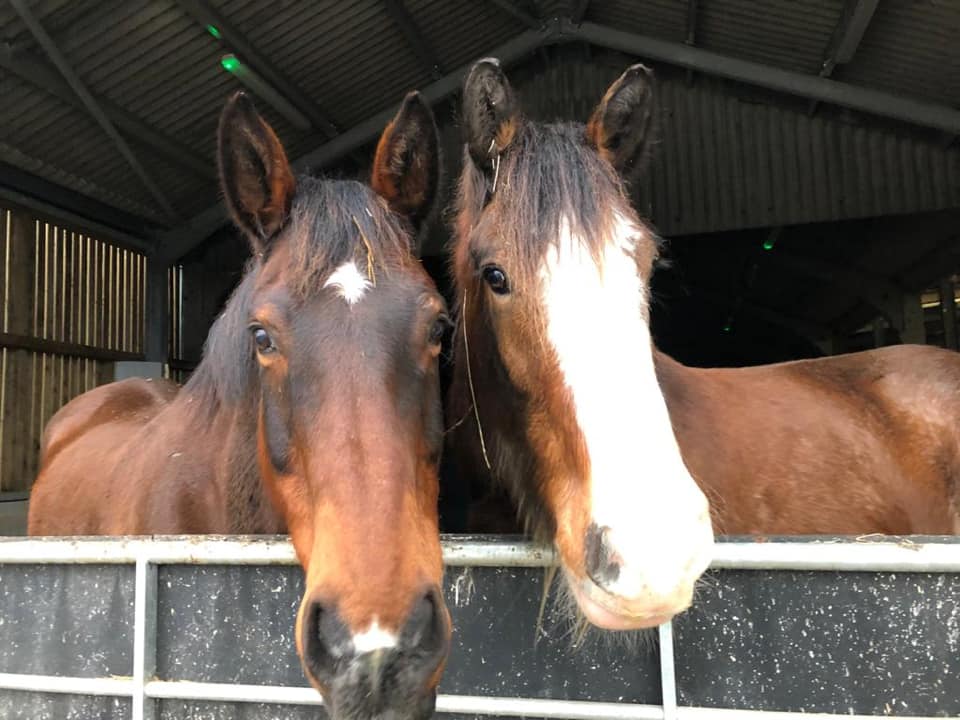
Important new blood test for small redworm
Redworm Parasites are a major contributor to poor health and welfare, and have had an especially big impact on many of the rescue horses and ponies we have taken in. The work carried out by the Moredun Research Institute and the specialist lab Austin Davis Biologics means a big change in worm management. We can now accurately test for the redworm parasite whilst it is still in the gut wall of the horse, meaning that keepers only need to use worming products when necessary, decreasing worm resistance to available drugs and improving the health of horses. Ask your vet about the blood test.
